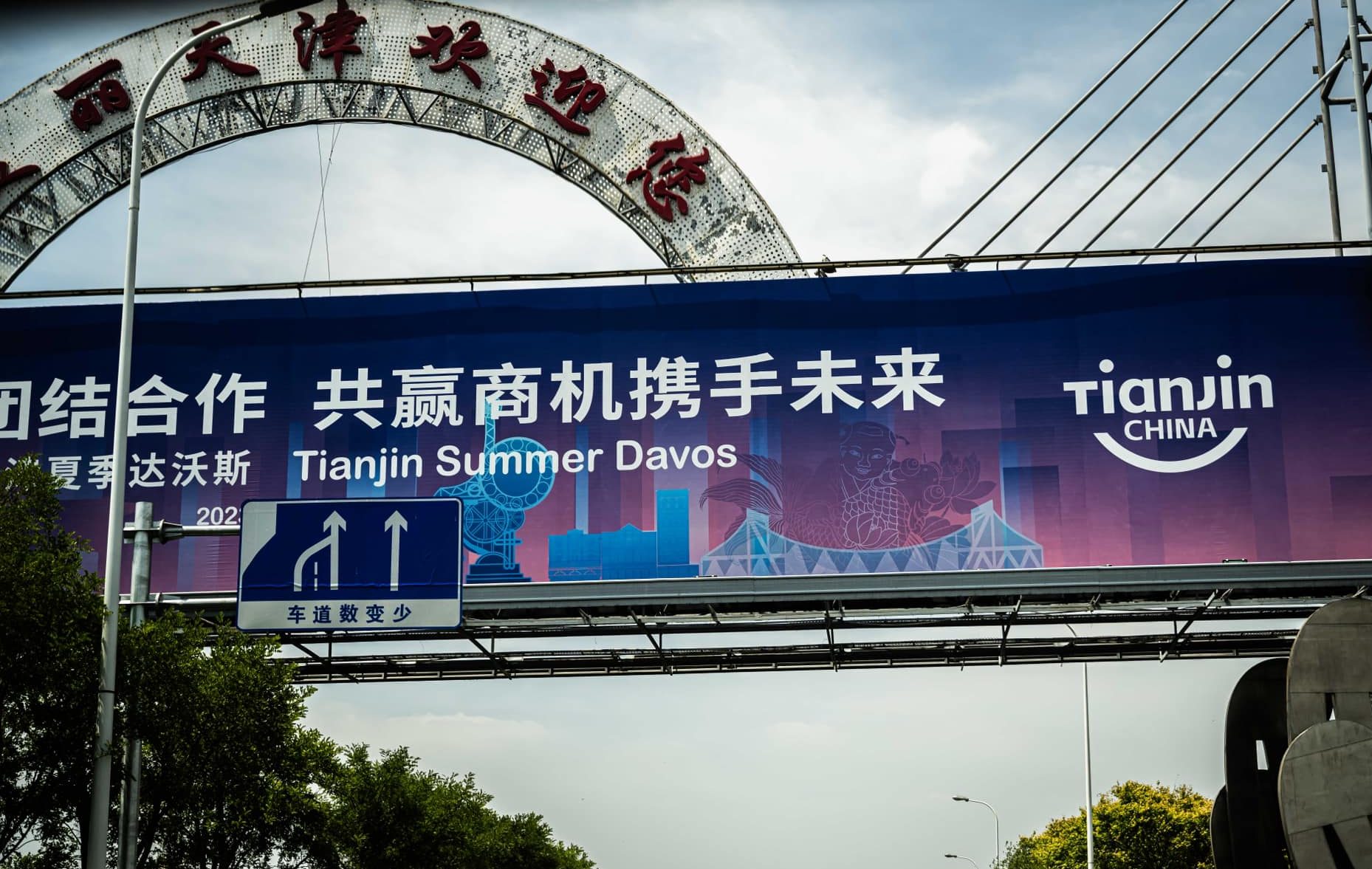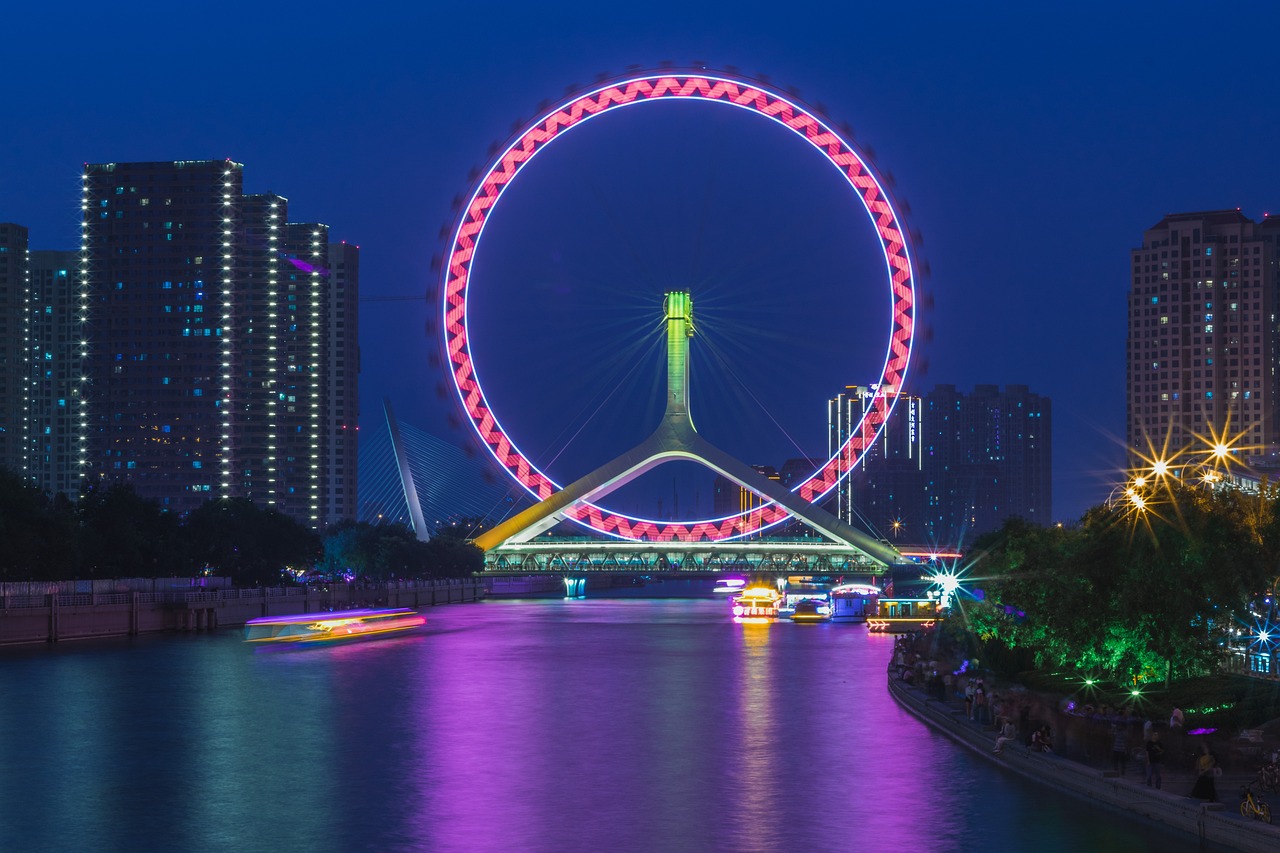Shanghai Airlines will operate two flights a week from Ningbo to Budapest and 10 passenger flights a week will connect Budapest and China.Continue reading
It would be brutal economic suicide for Europe to cut ties with China, especially after the continent’s competitiveness has plummeted significantly in recent years for a number of reasons, Minister of Foreign Affairs and Trade Péter Szijjártó said in Tianjin, China, on Tuesday.
Participating in a panel discussion at the World Economic Forum, the so-called summer Davos, the minister said that “connectivity is good, but the repeating a world of blocs is bad” and pointed out that this is the starting point of the government’s policy on economic relations between Europe and China.

Photo: Facebook/Szijjártó Péter
He underlined that based on certain trends, many EU member states see China as a risk or a threat, while Hungary believes that cooperation with the East Asian country can bring a lot of benefits. Cutting off economic ties between Europe and China, the so-called de-risking, would amount to “brutal suicide” for the European economy, especially after the continent’s competitiveness has plummeted in recent years, he warned.
It would therefore be in Europe’s interest to cooperate with China on the basis of mutual respect and mutual benefit,”
he said.
Szijjártó stressed that Hungary sees the East-West division of labor as a great opportunity and the only way to improve European competitiveness. For decades, he said, the basis for predictable economic growth was a combination of advanced Western technologies and easily available, relatively cheap energy sources from the East, but this has now been lost, as European-Russian ties have been broken because of the war in Ukraine.
If we cut the Europe-China ties, it would knock out the European economy,”
he said, pointing out that annual trade between the two sides was worth €865 billion. He emphasized that China’s gross domestic product (GDP, EUR 16,528 B in 2022) now exceeds that of the EU (EUR 15,807 B in 2022) . He said that in 2010, China’s share of world GDP was only 9 percent, while the EU’s was 22 percent, but that the situation has now reversed for various reasons, and now stands at 18 and 17 percent respectively.
“If we look at China as a rival, not as a partner for cooperation, Europe loses out,” he said. He also pointed out that in order to renew the automotive industry, which is the backbone of the European economy, Western manufacturers need electric batteries, and in this area they have become totally dependent on Eastern companies, particularly Chinese ones.
As for the ‘Central Corridor’ linking China to Europe, he said that the development of new routes was in the mutual interest of both sides, without which he saw no growth potential for the European economy.
“Without physical routes, everything is just perception and illusion,” he noted. He continued by saying that the future of bilateral relations depended on Europe’s readiness to return to rationality and common sense. The minister expressed his view that Europe has a kind of urge to lecture, judge and tell others how to live their lives, but that this makes no sense because countries around the world have different cultures and therefore different political systems.
We should not impose our own political system on others, but relations can be mutually beneficial based on mutual respect, as the example of Hungary, which has become a meeting point for Eastern and Western investment, shows,”
he said. In response to a question from the moderator, Szijjártó explained that Hungary has neither a coastline nor significant oil or gas resources, and is therefore highly dependent on imports. He stressed that the government has never considered energy as a political or ideological issue, but always as a physical issue, which requires resources and transport routes for its import.
He went on to say, that with the energy infrastructure currently in place in Central Europe, it would not be possible to supply our country without Russian sources, despite all political intentions. He stated that Hungary’s diversification meant the inclusion of as many energy sources and transport routes as possible, not merely the replacement of one dependency with another.

Tianjin, China. Photo: Pixabay.com
He described Central Asia as a possible source of diversification, but added that “as long as oil or gas cannot be transported in backpacks”, this would require the development of physical infrastructure, which the EU should also be involved in building, as this is not a national but a European issue.
For us, buying gas from Russia is not a matter of political taste, it is a matter of physical reality,”
he concluded.
Featured Photo: Facebook/Szijjártó Péter